In the second of our three-part series covering the 2025 United Nations General Assembly, host Landry Signé speaks with the public, private, and international actors shaping the United Nations’ engagement with the global private sector. On the 80th anniversary of the organization, these guests discuss the U.N. not just as an organization of member states but as a leading voice rallying CEOs, entrepreneurs, industry and policymakers.
Participants:
-
Victor Djemba, Chief of Africa Regional Division, U.N. Industrial Development Organization – Listen to the full interview
-
Rui Miguens de Oliveira, Minister of Industry and Commerce, Republic of Angola – Listen to the full interview
-
James Mwangi, Chief Executive Officer, Equity Group Holdings – Listen to the full interview
-
Kibonen Nfi, Creative Director, Kibonen – Listen to the full interview
-
Tolulope Lewis Tamoka, Chief of Government Relations and Africa, U.N. Global Compact – Listen to the full interview
Transcript
[music]
SIGNÉ: Hello, I am Landry Signé, senior fellow in the Global Economy and Development Program and the Africa Growth Initiative at the Brookings Institution, and host of the Foresight Africa podcast. Welcome to part two of our three-part series reporting from the 2025 U.N. General Assembly, as we mark 80 years of the United Nations.
Here at the Brookings Foresight Africa podcast, I engage with distinguished leaders in policy, business, academia, and civil society to share their unique insights and innovative solutions to Africa’s challenges while highlighting opportunities to advance engagement between Africa and the global community. You can learn more about this show and our work at Brookings dot edu slash Foresight Africa podcast.
The U.N. General Assembly, known as UNGA, is the world’s top political summit, featuring everyone from top diplomats and heads of state, to rising and established stars in business and civil society. This year’s Assembly was organized with the theme “Better Together,” reflecting the present sentiment that we are in a time where the case for multilateral global governance needs renewed defense.
[music]
In this second part of our UNGA series, you’ll hear from a variety of distinguished guests: entrepreneurs, government officials, CEOs, and U.N. leaders about the United Nations’ relationship with global business and the private sector.
My first guest is Dr. James Mwangi, CEO of Equity Group Holdings, who explained why the role of the private sector in the U.N.’s work is becoming increasingly important.
[3:02]
MWANGI: I’m Dr. James Mwangi, the group Chief Executive of Equity Group Holdings, an East and Central African regional financial group.
As Equity Group, our priority in attending this 80th UNGA annual general meeting was to advance the cause of private sector-led development finance. We have seen the challenges that are there in financing development, but we also believe there is significant capital with the private sector, which, if it receives the right signals, right right incentives, and right policy framework, could be able to alleviate the shortfall in development financing that the world is struggling with, and particularly the Sustainable Development Goals.
SIGNÉ: While current drawbacks in development financing from national governments have made the need for private funding more apparent, corporate social responsibility has long been part of the United Nations’ strategy for development. The U.N. leads the world’s largest corporate social responsibility initiative, U.N. Global Compact, with over 25,000 corporate participants across 167 countries.
[4:46]
TOLULOPE LEWIS TAMOKA: Thank you for having me. My name is Tolulope Lewis Tamoka. I’m chief of government relations and Africa at the United Nations Global Compact.
The lasting effort of the United Nations over the last eight decades has been its ability to unite. To unite around key priorities for the continent and the people of the world. And so to be part of that initiative is really an important one. And for us as U.N. Global Compact, to bring the voice of the private sector, business, and to unite business with the rest of society to advance the SDGs has become more important than ever in today’s world.
SIGNÉ: As the U.N. celebrates its 80th anniversary, the U.N. Global Compact is commemorating its 25th anniversary.
TAMOKA: And behind this 25th celebration of U.N. Global Compact is the work we have done to elaborate our strategy from 2026 to 2030, looking at the key sets of priorities that will take us to the end of the course of the current SDGs.
And in there we are keen to ensure that the voice of business still remains relevant to support the United Nations and the public sector to address the challenges and the gaps that still remain to be met in advancing the SDGs.
Bringing key stakeholders together and using the U.N.’s convening power has remained one of the platforms that the U.N. is pretty good at showcasing. And for us at U.N. Global Compact, we use that space to engage business leaders and heads of states in conversations around key themes from climate action to advancing gender equality, looking at labor rights, but also looking at the future of business and ensuring that we plan for sustainable business and the long term still becomes one of the key priorities that we engage with.
SIGNÉ: One of the U.N. Global Compact’s flagship events is GABI, the Global Africa Business Initiative, a platform for promoting investment and business opportunities in Africa that is co-organized with the African Union during each year’s UNGA.
TAMOKA: And in particular looking at the African continent, in my portfolio I work on advancing the priorities for Africa and we use our convening spaces through two key initiatives.
[music]
One, you have participated in our flagship event, GABI, which is looking at bringing global leaders and African business leaders towards a positive narrative, as we discussed before we opened this session. It’s about bringing Africa to the next frontier and bringing initiatives to scale. And that’s what we convened around this year, bringing eight heads of states, including from the continent and from outside the continent, to really champion this cause.
SIGNÉ: GABI’s success highlights the growing interest in Africa’s economic advantages and the tremendous opportunity for Africa to take center stage in the world economy. Dr. Mwangi saw potential for Africa to reorient the world economy not just as a source of human and natural resources to other countries, but as a magnet for global capital in its own right.
[8:51]
MWANGI: Africa has at its disposal, by 2050, 42% of the world labor force. It’s not labor that should be moving. It is industry that should be moving where the labor is because the labor also becomes the market. So if you have the raw material, you have the energy, and you have the consumer, it’s the capital that needs to come to Africa. That really needs to be articulated, and Africa needs not to miss that opportunity.
Lastly is Africa has been contributing to global trade through production and delivery to the marketplace of raw materials. Time has come for Africa to rise in partnership with the rest of the world to add value to its agricultural produce, its mineral produce, so that opportunities for jobs and value creation can be on the African continent.
SIGNÉ: Rui Miguens, minister of industry and commerce for the Republic of Angola, also highlighted Africa’s tremendous potential.
[10:10]
MIGUENS: What is important for us is to stress that Africa is a continent of opportunities. Africa is engaged and wants to deepen its engagement with the rest of the world in order to achieve our development goals. That’s our priorities. We need to get the attention for the rest of international community in order for it to understand that Africa has the potential, Africa has the willing, and Africa has a clear plan and strategy for its own development. Of course, we rely on our efforts and our strengths. But also we’d like to attract other stakeholders on the international community.
This also on the political side, the interest from the continent and my country as well to bring attention for the need for more voice and representation for African continent. We account for 1.2 billion people right now. So it’s a huge part of humanity, and our representation is not as it should be in terms of the representation on the Security Council, in terms of representation of the various organizations in the U.N. family.
[music]
SIGNÉ: Capitalizing on this potential requires significant industrialization in African countries, another priority area in which the United Nations is hard at work, specifically through the United Nations Industrial Development Organization — UNIDO.
[12:15]
DJEMBA: My name is Victor Djemba. I’m the chief of UNIDO’s Bureau for Africa based in Vienna, Austria. We have the U.N. as a whole, but each agency has a particular role. In this respect, for UNIDO, the U.N. role is creating a consensus. One of the enduring achievement also is the consensus around the 2030 Agenda and the SDGs that have been foundational particularly in bringing industrial and sustainable development at the heart of the global development discourse.
I think I could not respond to your question without bringing this, because we see a great difference between the Millenium Development Goals in the beginning of … that ended … started at the beginning of the century to 2015. And then one of the great change, improvement is the consideration, the link between development and industrialization.
SIGNÉ: I asked Victor Djemba what was on UNIDO’s agenda during this historic General Assembly, and how the organization was positioning itself in a changing world.
DJEMBA: Particularly, we have the climate resilient industrialization. That is very key because industrialization in fact is at at the heart of a government, but has to take into account issues like the climate. So climate resilient industrialization is key. Which we are entering … we are in the Fourth Industrial Revolution. I think digital transformation is also an important aspect and to consider. We are talking a lot about the the competition is not within the nations, is within the value chains. So talking about the sustainable value chain, value chain, the supply chain, we see one of the consequence of the COVID-19, the disruption of the supply chain. That created a lot of issues.
So I think in this area, I think building on this legacy and improving the agility, the action-oriented we see the willingness to provide concrete action, transformative solutions in those areas I mentioned are key for the U.N. system.
Let me also touch a bit from the Africa Bureau perspective. In in itself I would say is to adopt … In Africa, one of the key issues is structural transformation. We are, we have economies that are more or less commodity based, inherited from the colonization. So we have to transform those economy are very key. So this we we should enter into an era taking advantage of all this involvement within this uncertainty to really move from the resource wealth to value addition, I think is the key. Value addition industries, that is a way to create wealth, to create jobs, and also to ensure that people have well-being within the area of where they’re born or where they have, they’re planning to have their future.
SIGNÉ: One consequence of these digital transformations is a growing place for Africa’s cultural industries. Kibonen Nfi, an entrepreneur in the rising industry of African fashion, described how this underappreciated sector of the economy has room for growth.
[16:14]
KIBONEN NFI: My name is Kibonen Nfi. I’m a fashion designer, creative director for Kibonen. You know, in Africa we just think a lot of things are, like the creatives, it’s informal trade. You know, we always get, we are not really classified like we contribute to the GDP of a country. You know, we are always looked at, “oh, it’s informal.” And truly we are not really in the system.
So, the top priority for us is to position fashion as a driver for economic growth, youth empowerment, youth education, and also for driving sustainability, you know, like the the environmental agenda for for for the U.N.
So being here and having conversations with policymakers, industry leaders is definitely key because this is where ideas are shared, initiatives are taken, exchanges are done, and we are able to look at things holistically in how fashion can be positioned not just for the aesthetics of it, but for what it contributes to the development of a people, and of a nation, and of the continent as a whole.
SIGNÉ: I asked Kibonen how her business and her industry are responding to some of the global challenges and key topics being discussed at this year’s General Assembly.
[17:49]
KIBONEN: So what I’ll say is the global challenges have pushed us to innovate not just with design, but beyond design. You know, at Kibonen, climate change has reshaped our commitment to sustainability. For instance, now we use more of sustainable fabrics, which are biodegradable, you know, not just fabrics, which would add to the pollution of the environment, but our fabrics are all biodegradable.
We also use our production processes, like we work with a sustainable ethical production firm in the Dominican Republic, which is 100% ethical. They recycle water, especially the water which they use for dyeing. They use 100% solar energy. So those things are the things which today when I’m looking for factories, I try to make sure that they are in that way.
And also for what I do back home where I’m able to put women together, train them, young people, train them, and create jobs for them. We are trying to solve the problem of unemployment and also of education.
So for me, it is important that we take on challenges as solutions providers, not just as people who complain about the problems and complain about the challenges, but we are able to provide solutions.
And the one thing I always say is no solution is a small solution. Every solution comes together to solve the bigger problem. And at Kibonen, we are really, really committed to that.
SIGNÉ: I love this. No solution is a small solution. Marvelous.
[19:15]
KIBONEN: Looking ahead we see opportunities for stronger public-private partnerships where creating industries like fashion are integrated into the U.N. frameworks. You know, for job creation, climate action, and cultural diplomacy.
So what we are suggesting, what we recommend is investing in creative industries as as engines of youth employment and economic transformation. Because through the creative industries, loads of jobs can be created. When I look at just fashion, the production unit for fashion is very human resource intensive.
SIGNÉ: For leaders from every sector, the United Nations is a respected and vital actor for coordinating the efforts of private and government stakeholders. The organization’s neutrality and legitimacy are important considerations when deciding to engage with the U.N. and its policies.
KIBONEN: The collaboration between the U.N. and, you know, what we do is really, it’s key. It’s key because the U.N. is a platform that brings together a lot of private, public policymakers. Everybody comes there. And everybody looks onto the U.N. for some strategic direction. When the U.N. outlines their Sustainable Development Goals, for instance, it affects every company. Every company is looking at how can we be part of this? Because we look at them like the authority in these spaces.
SIGNÉ: Rui Miguens, Angola’s minister of industry, commended the U.N. as a neutral arbiter that makes communication between stakeholders more equal.
[21:09]
RUI MIGUENS: Well, you know, this is a very important place. I mean, we are actually within our borders as countries, individual countries, but here we have the opportunity to be equals among equals or supposed to be being among equals. So the communication is more fluid, is more responsiveness, and also it’s a communication that is set in the parameters where everyone needs to understand, needs to hear the counterparties.
[music]
So this, from my side, it’s a very important place where actually all the international players, all the international community can openly speak about their problems and how can we solve together as humanity all these challenges that we’re facing.
SIGNÉ: This concludes part two of our special series on UNGA 2025. Stay tuned next week for the third and final episode on one of the U.N.’s most fundamental mandates: ensuring global peace and security.
[music]
I am Landry Signé, and this has been Foresight Africa. Thank you, listeners, for joining me today.
The Foresight Africa podcast is brought to you by the Brookings Podcast Network. Send your feedback and questions to podcasts at Brookings dot edu. My special thanks to the production team including Fred Dews, producer; Dafe Oputu and Nicole Ntungire, associate producers; Gastón Reboredo, audio engineer; and Izzy Taylor, senior communications coordinator in Brookings Global.
The show’s art was designed by Shavanthi Mendis. Additional promotional support for this podcast comes from my colleagues in Brookings Global and the Office of Communications at Brookings.
- Subscribe to Foresight Africa on Apple, Spotify, Afripods, or wherever you listen to podcasts.
- Listen to previous episodes.
- Watch episodes on YouTube.
- Learn about other Brookings podcasts from the Brookings Podcast Network.
- Sign up for the podcasts newsletter for occasional updates on featured episodes and new shows.
- Send feedback to [email protected].
The Brookings Institution is committed to quality, independence, and impact.
We are supported by a diverse array of funders. In line with our values and policies, each Brookings publication represents the sole views of its author(s).


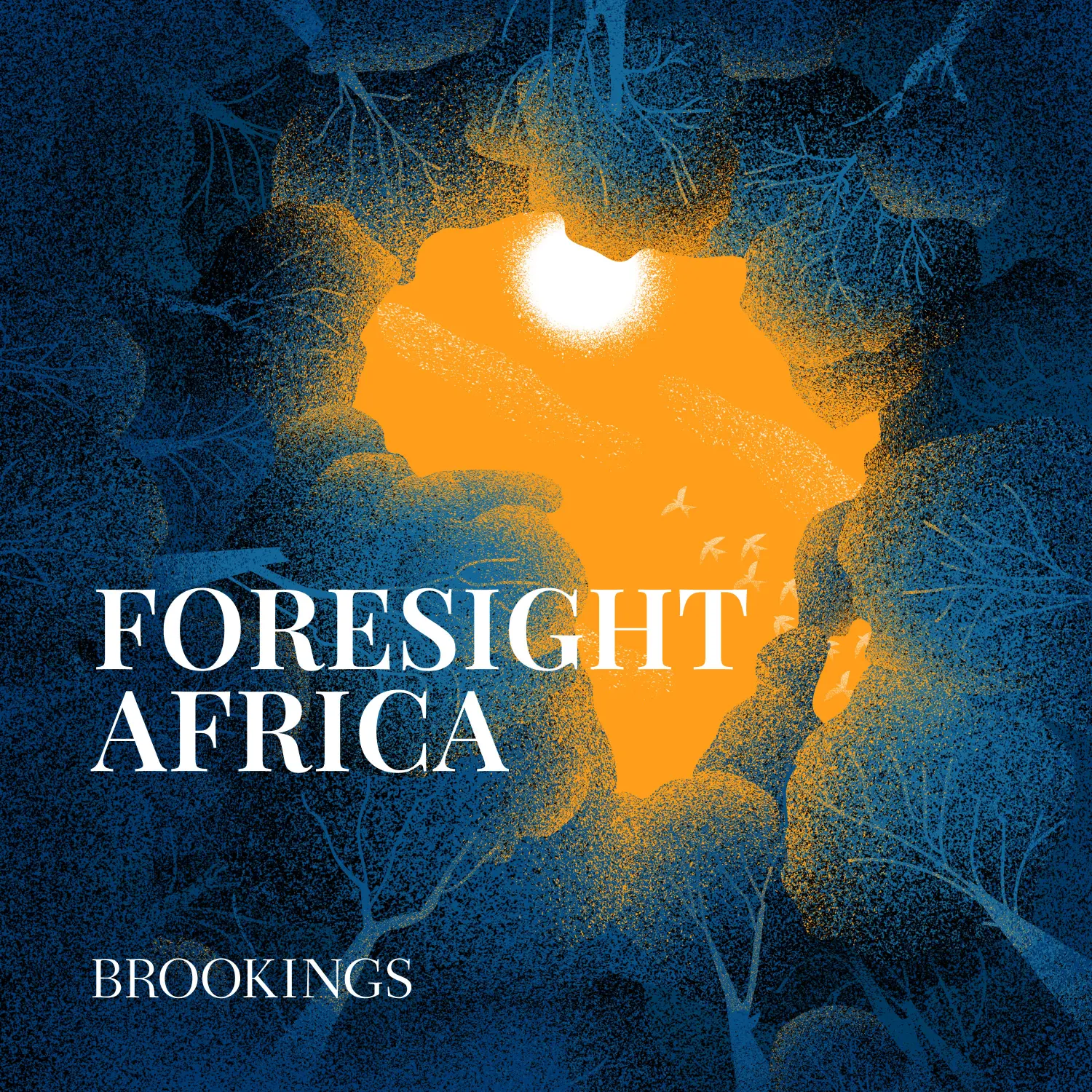
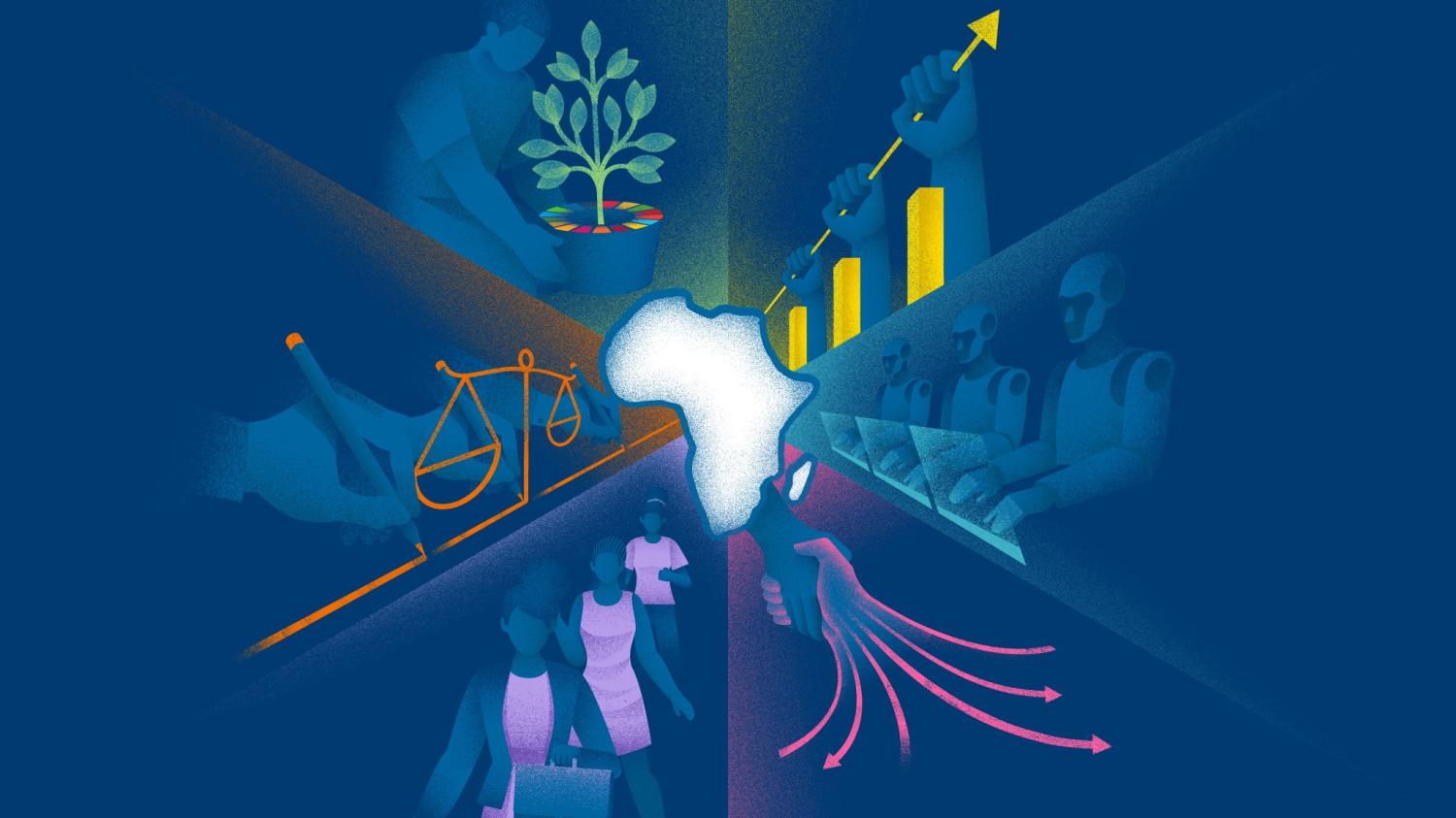
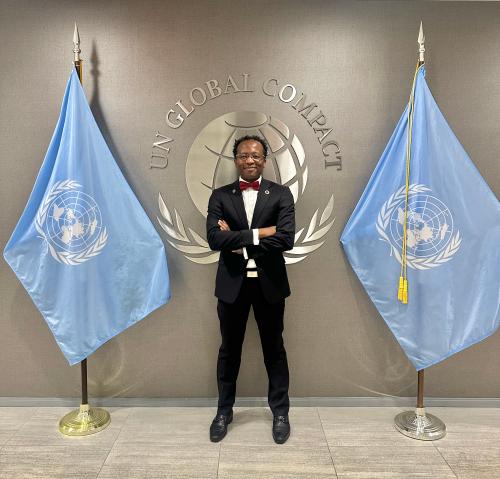
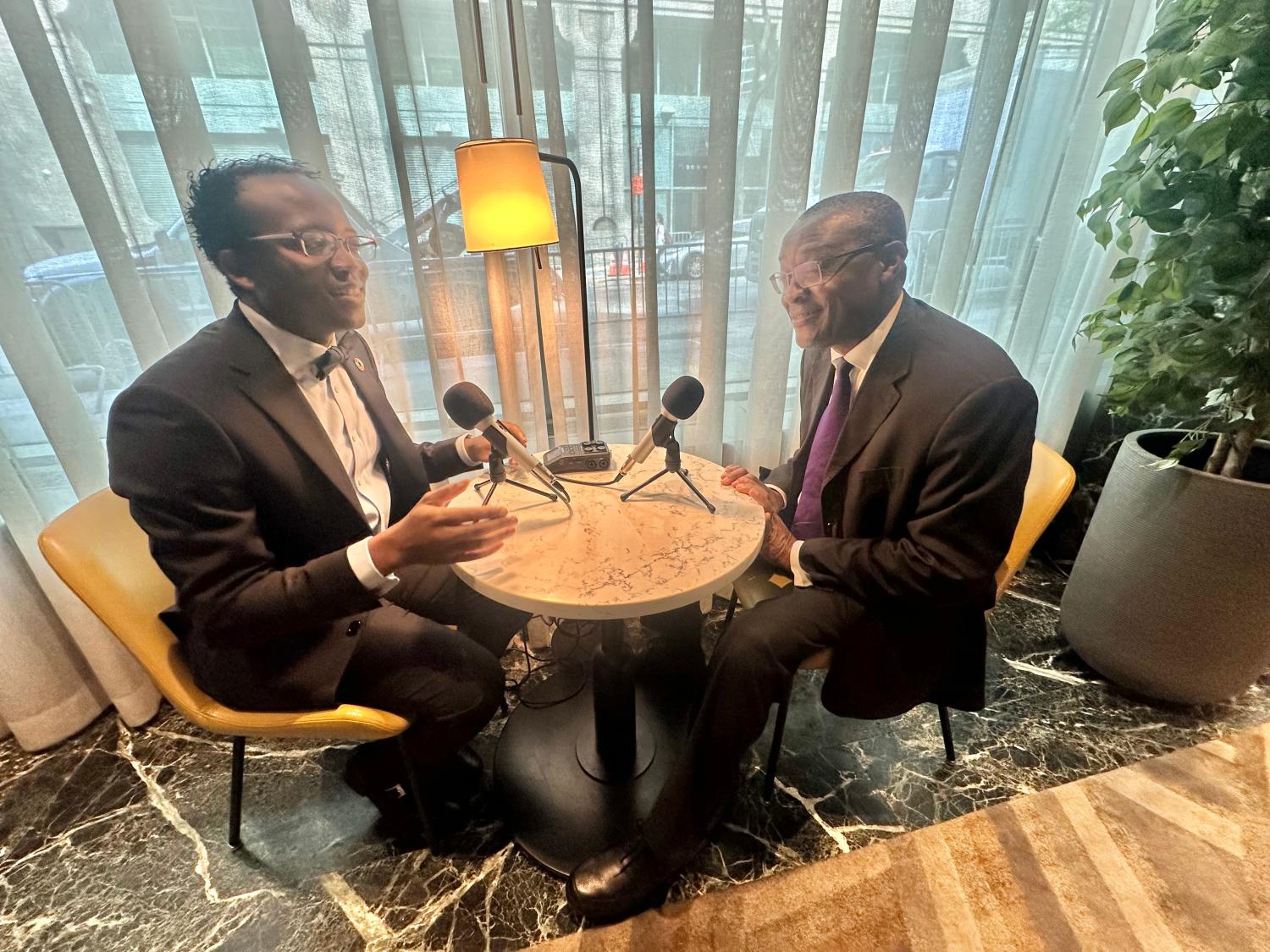
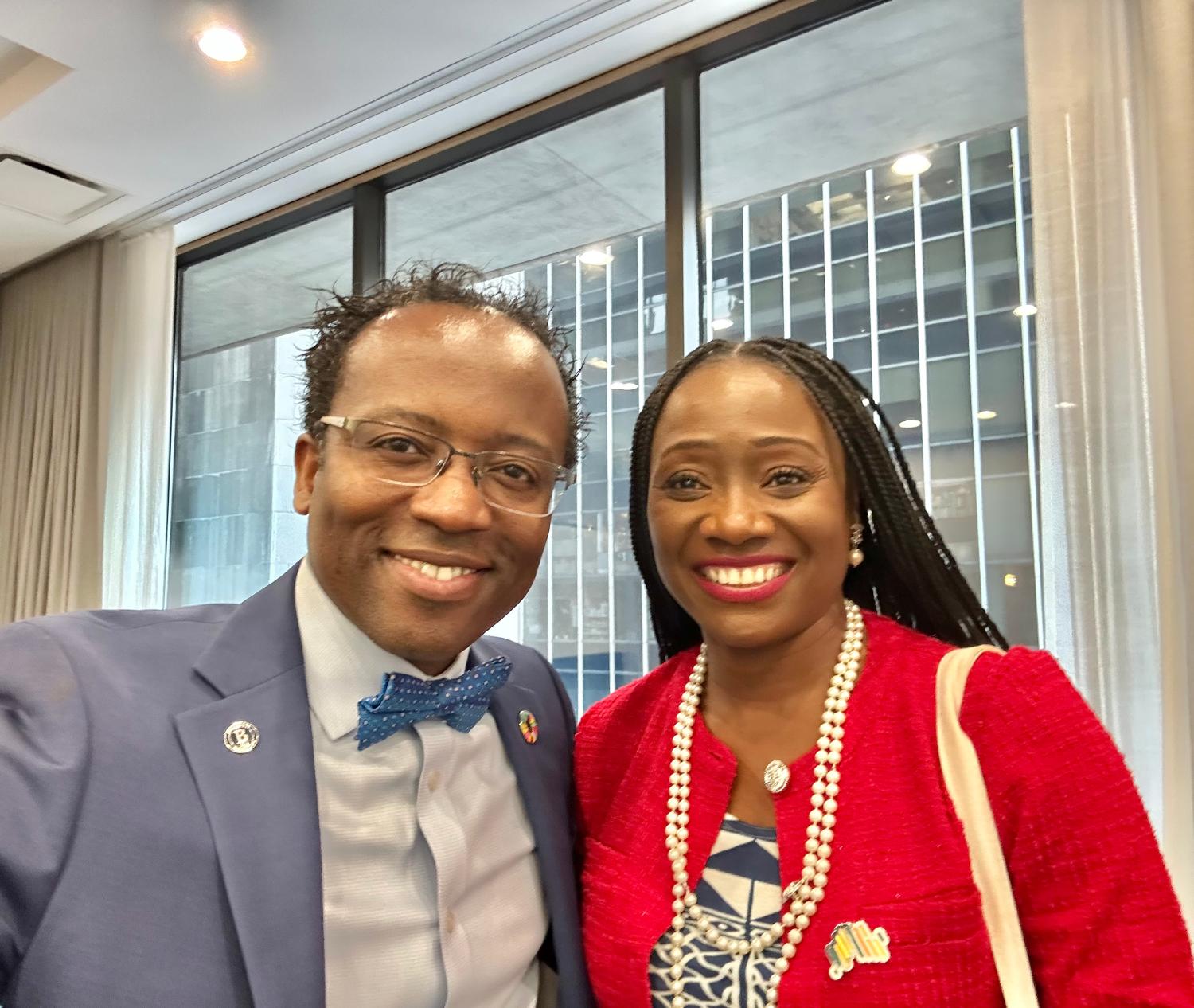
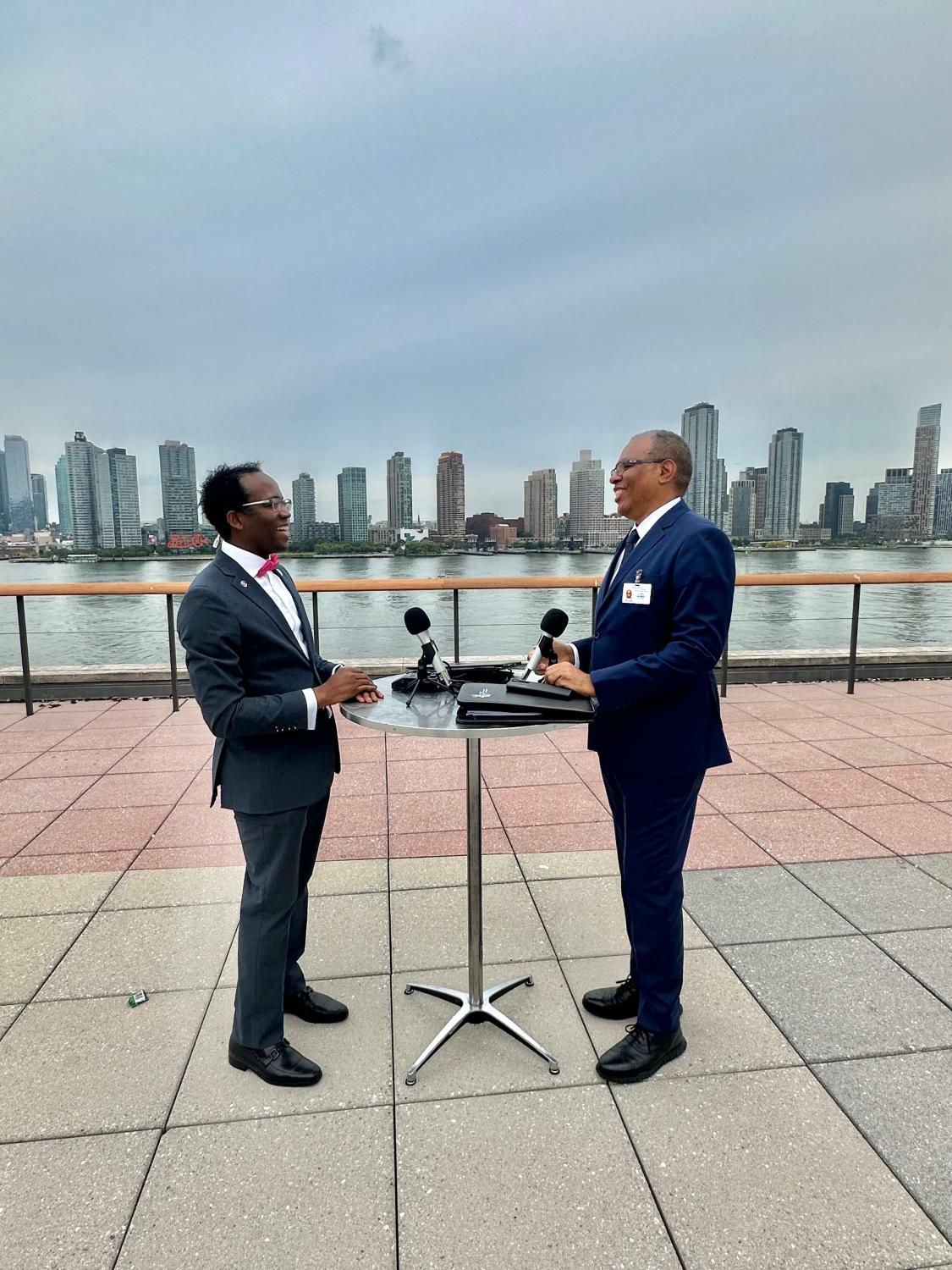
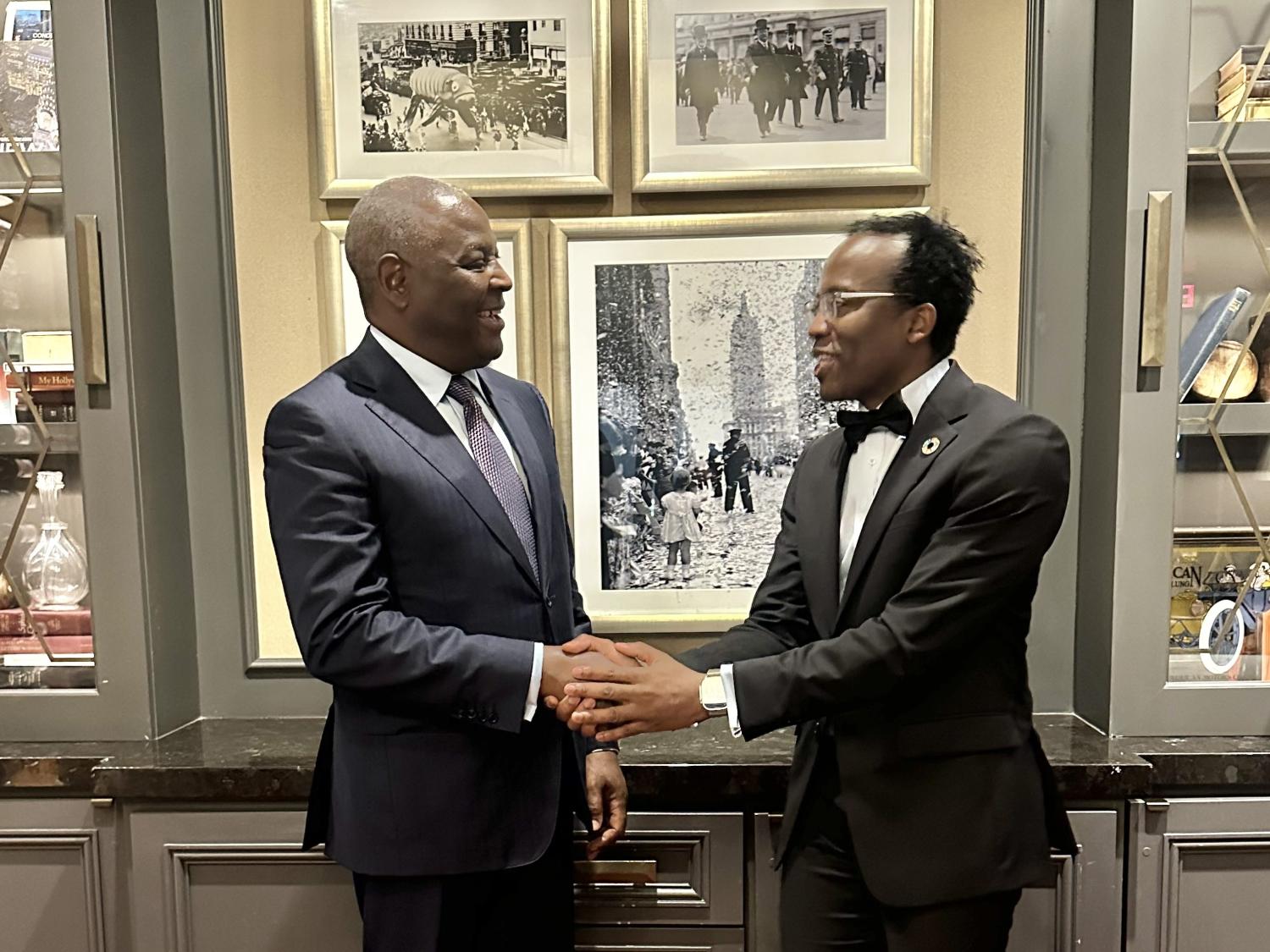
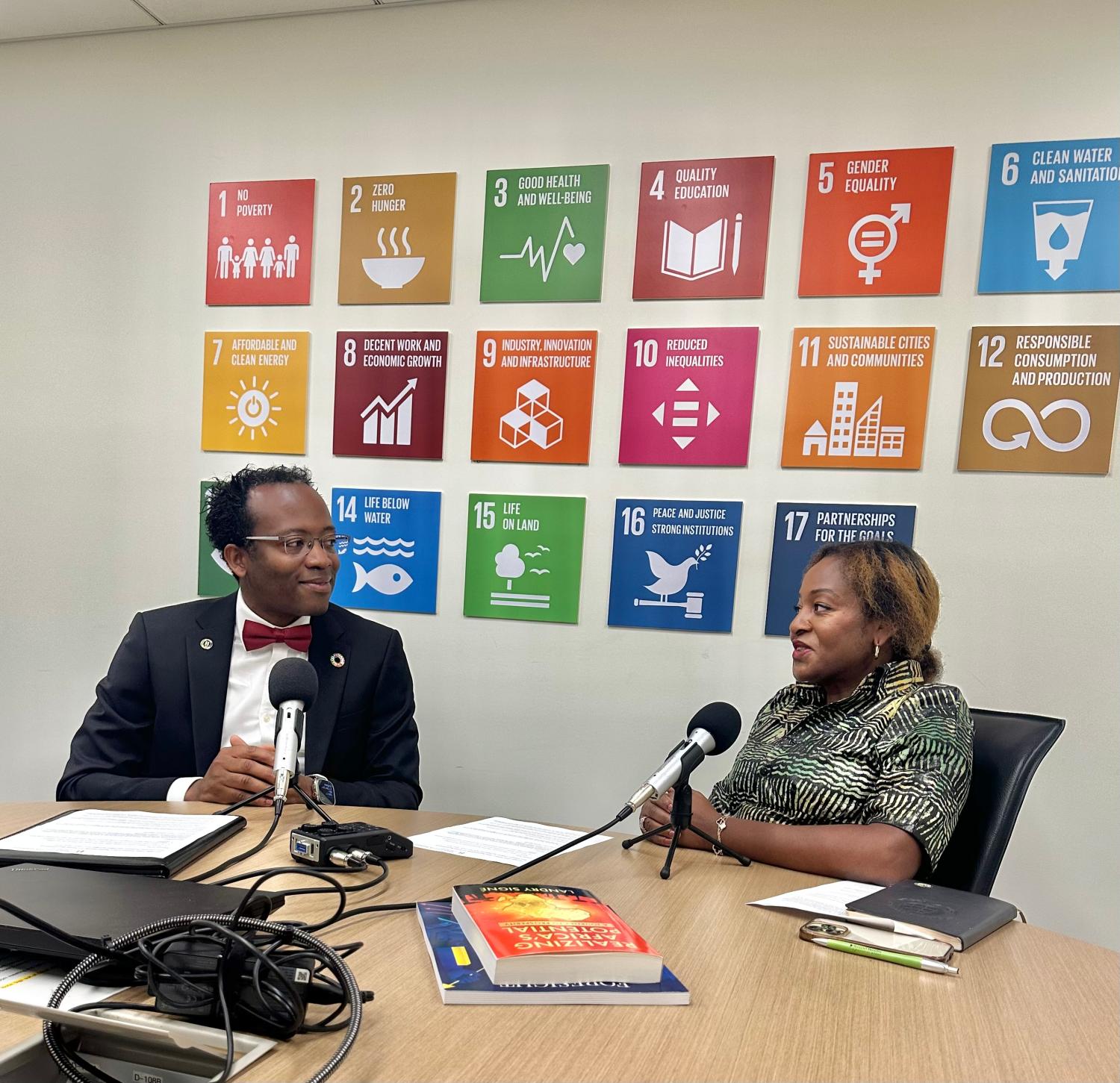




Commentary
PodcastHow the United Nations and the private sector partner for global prosperity
Listen on
Foresight Africa Podcast
October 15, 2025